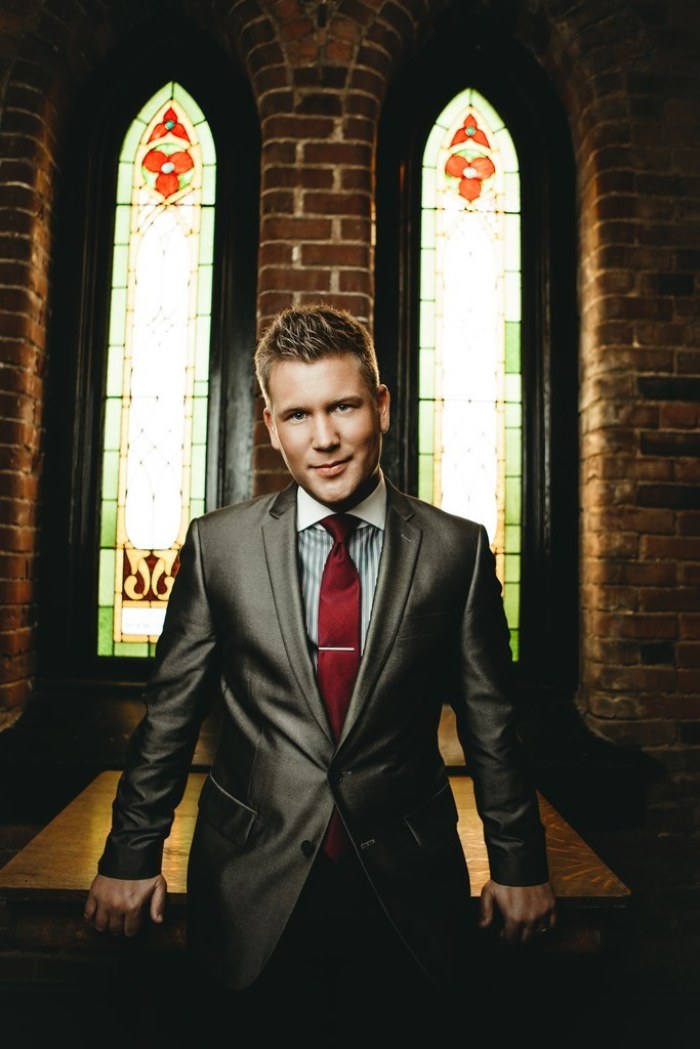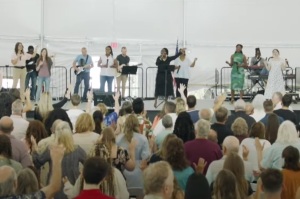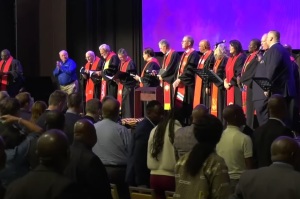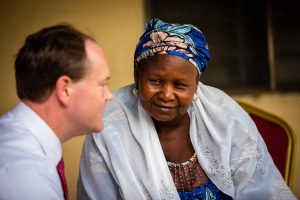Prescription Drug Addiction Is an 'Epidemic' in the Church, Says Ex-Addict, Gospel Singer Joseph Habedank

Dove Award-nominated artist Joseph Habedank is on a mission to take on the "epidemic" of prescription drug addiction in the church with his personal testimony and his new album, "Welcome Home". Habedank is an award-winning singer and songwriter who performed alongside American Idol Season 9's "singing cop" Bryan Walker in the gospel group The Perrys. He is also a recovering prescription drug addict.
Habedank's new solo album, released last month, is inspired in part by his journey from a dependency that once put his music career on hold and nearly cost him his marriage. In his interview with The Christian Post, Habedank shared his struggles and his hopes for other Christians, who like him, may be silently struggling in church.
Christian Post: Congratulations on the new album! How excited are you for its release?
Habedank: It's been an amazing journey because when I came off the road I wasn't sure what exactly I was going to do. You know when you go through something like what I did, it's very easy to feel like that God is through with you and… the devil fills your mind with all kinds of stuff. So to say I'm excited is an extreme understatement and I'm just really grateful.
I think I'm really more grateful now than I would have been had I not gone through what I did. So I'm just so grateful for the opportunities to not only share my music, but to share my story and hopefully to help other hurting people who are suffering from addictions of all kind. That is one of the biggest parts of the program that I [am involved in] – is to help other addicts or help other alcoholics. So it's been an amazing, amazing experience. I'm so grateful and this album is just so special to me for so many reasons.
CP: What is the meaning behind the album name/ title track "Welcome Home"?
Habedank: I was with Daywind Records from the time I was 17 until I was 27 when I left The Perrys. So when I found out that Daywind wanted to sign me as a solo artist, one of the songs that we thought was just perfect for an opener is called "Welcome Home," and it basically talks about the family of God and no matter how far you've gone or no matter how far you've strayed or even how long it's been since you've been to church, none of that matters or should matter in that moment. It's just being grateful that they have come back to the fold and they have chosen to be a part of the family of God again.
It was also a kind of play on words of welcome home to me who had been, I guess you can say, obviously away from the Lord and had also, on the other end of that, had been away from Daywind for several months. So it was probably just a whole bunch of different things. We played around with some other titles, but that one just felt like the most natural and the most fitting title for this record.
CP: Describe how your dependency on prescription medicines began and the moment you needed to get help.
Habedank: In 2008, I had an ulcer on the back of my throat and I was introduced to narcotics that someone gave me. You know most of the time people who get hooked on prescription pain medicine, they get started in an innocent manner where as they take it for a surgery or some sort of back problem and something that starts off so innocent and legal. So I took it and it helped, but I'll never forget the first time that drug started working in my system and I thought, man this is the answer to every single problem that I have in life. Every insecurity that I have is gone. I'm comfortable in my own skin.
I'm kind of an introvert and it kind of made me outgoing, at least in the beginning. I took all those things and then we had a few people come in and out of the group that reintroduced me into these narcotics and by 2010 I was pretty well hooked.
In fact I came off the road for about five weeks in 2010 right before I got married and I didn't really go to any sort of treatment. I kind of just took some time off and tried to kick it on my own and had a guy that I stayed with that kind of held me accountable. But I never really got the education that I needed regarding addiction so I stayed off of medication for probably two or three months in 2010 until I went back.
Then in 2013 is when I finally was confronted by the artists that I was singing with at the time. They never really mentioned firing me although I think that was probably inevitable, but they said we can't have you on the road and we've been through this before. We've kind of given you all the chances we can give you. What would you like to do? I had already decided I needed help so I told them, I said, I want to get some help and I'd like to resign if that's OK and they were gracious enough to allow me do that. That was on May 21 when I resigned. I checked in to Cumberland Heights treatment facility here in Nashville on June 8. I checked out July 8. I've lived there for 30 days, learned all about addiction, and I actually had a wonderful experience at Cumberland Heights. I told them when I graduated, if you will, from the program, I will always be an advocate for this place, and I want to make sure that every interview that I do, I make sure that I mention them. Outside of the Lord and my wife, they single-handedly saved my life and so I'm grateful for that place. I'm actually going back there to sing. I just talked to the spiritual advisor last night so that's in the works.
CP: You have expressed a desire to help those silently suffering with substance abuse problems in the church. How common is drug addiction among Christians?
Habedank: Honestly, I think it somewhat of an epidemic… You think about as many times as people get sick, go to the doctor and get an antibiotic, and yet still the number prescribed drug in America is hydrocodone and more people died of opiate overdoses last year than people who died in car accidents. So with it being that prevalent, it has to be in the church.
Not only do I draw my conclusion from that but if I'm being completely candid, a lot of the medication that I was getting was not just from doctors. It was from "friends" in church who were either hooked on it as well or were dealing it, selling it. I know for a fact that it's prevalent in the church but I also know that I never would want to come across as judgmental in any interview because I get it. I know how hard it is quit, how hard it is to finally humble yourself and say you know what I need help, I got to break these chains but I can't do it by myself.
But to get back on the subject, yeah, it's definitely, definitely [in the church.] If it wasn't prevalent in the churches, we wouldn't have programs like Celebrate Recovery or Reformers Unanimous, another one that's very prevalent in the independent Baptist movement, which is the movement I grew up in. I think it's very much an epidemic and that's my heart. That's my passion. I just want to help people see that there is a way through.
CP: You checked into a treatment facility, then participated in an outpatient program. During this time of rehabilitation your wife stayed by your side. What lessons did you learn about marriage and your wife?
Habedank: I grew up in a broken home so I was already terrified of marriage. I really thought I don't want to leave my wife. I was terrified of divorce... This was before I ever met Lindsey. My wife, not only did she stick with me, this was the second time this happened. The first time was quite a bit different because I didn't get help, but three weeks before we got married, I had to sit down and tell her hey I got a problem with prescription medication and I'm going to come off the road for a couple weeks before our marriage and try to get myself cleaned up. I did all that and she stood with me. It was hard. Our honeymoon was hard because she's basically relearning me as an individual and it wasn't easy, but she stood by me and then we went through this. It's like getting the rug pulled out from under you.





























